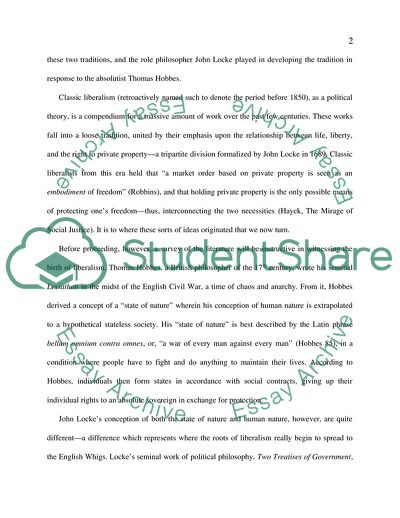
- Home
- Free Samples
- Premium Essays
- Editing Services
- Extra Tools
- Essay Writing Help
- About Us
- Studentshare
- Subjects
- Miscellaneous
- Western civ paper
Western civ paper - Essay Example

- Subject: Miscellaneous
- Type: Essay
- Level: Masters
- Pages: 4 (1000 words)
- Downloads: 0
- Author: xquitzon
Extract of sample "Western civ paper"
Liberalism was, at this early time, predicated on some essential political views, like freedom of speech, press, and so on. However, there was a strong difference between the English and the Continentals. As Hayek explains, “While to the older British tradition the freedom of the individual… was the chief value, in the Continental tradition the demand for the self-determination of each group concerning its form of government occupied the highest place” (Hayek). Thus, although the two were concerned with the same thing, their specific focuses were different.
Together, however, these two loose philosophical affiliations formed the groundwork for liberalism, which attained a political meaning with Adam Smith, who spoke of “the liberal plan of equality, liberty, and justice” (Smith). Our examination ends here, however; the scrutiny shall from be directed at the formation of that philosophy from these two traditions, and the role philosopher John Locke played in developing the tradition in response to the absolutist Thomas Hobbes. Classic liberalism (retroactively named such to denote the period before 1850), as a political theory, is a compendium for a massive amount of work over the past few centuries.
These works fall into a loose tradition, united by their emphasis upon the relationship between life, liberty, and the right to private property—a tripartite division formalized by John Locke in 1689. Classic liberalists from this era held that “a market order based on private property is seen as an embodiment of freedom” (Robbins), and that holding private property is the only possible means of protecting one’s freedom—thus, interconnecting the two necessities (Hayek, The Mirage of Social Justice).
It is to where these sorts of ideas originated that we now turn. Before proceeding, however, a survey of the
...Download file to see next pages Read More
- TERMS & CONDITIONS
- PRIVACY POLICY
- COOKIES POLICY